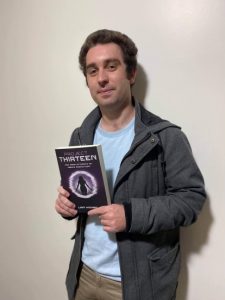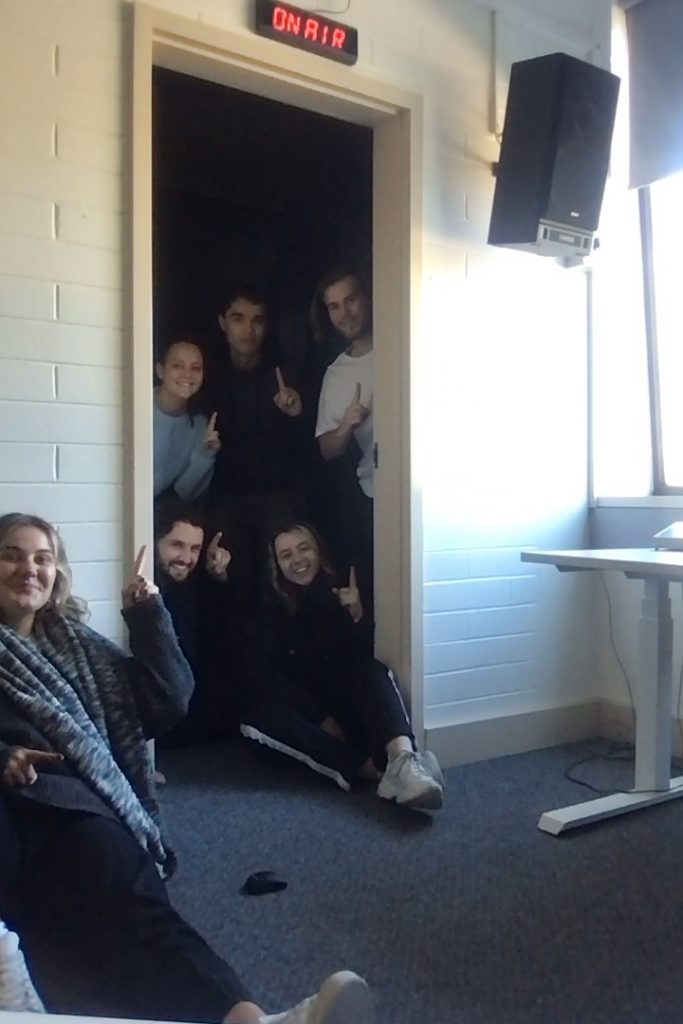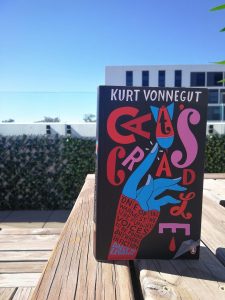Up and Coming Author Liam Higham – A Q&A
Liam Higham grew up in a small country town, and through his love of reading, a passion for writing soon developed. Now, Liam has two published books to his name. His first book, Hoboman, first published in 2017, provides a refreshingly satirical take on superheros by following the adventures of the friendly neighbourhood hero, Hoboman. His second book, Project Thirteen, is a sci-fi tale of survival and the exploration of humanity, having been published earlier this year.
Liam’s passion for writing and storytelling is evident in every sentence he crafts and puts to paper. In an attempt to get further into the mind of this writer, and to discover what is about writing that keeps him coming back to it, as well as what he’s got planned next, I had a few questions to ask him.
Q: What first drew you to writing? When did this passion first develop?
A: Unfortunately, there was no ‘Road to Damascus’ style epiphany where I suddenly knew this was my calling. It boils down to sibling rivalry. My brother was in high school and had to craft a short story for English or something. He came out boasting about how he had written something like three or four pages, and I thought, “You know what? I reckon I could write more.” So I did. And then I thought it needed to be fleshed out a bit more and, lo and behold, suddenly I had a novel-length manuscript. It was utter trash, but it was novel-length.
Q: What, over the years, has kept you writing?
A: This question is a very slippery slope. How deeply do I analyse myself? Is it a need for validation from other people? To prove myself? Is it some weird grandiose idea where I feel like my voice is so important, I have to be heard? I don’t know. Ultimately I think it simply comes down to the notion that I think some of my ideas are pretty neat and I’d like to share them with other people. I’ll read them at least. It’s a very expensive way to read, I’ll admit.
Q: Why is storytelling important, to you?
A: I feel like storytelling is important as it allows you to hold a mirror up to society, for better or worse. You are able to catch a glimpse of the politics, the beliefs, the ideas of that time and that place. It allows you to notice the consistent themes throughout the years, would it be too cliché to say ‘the human condition’? Most importantly, it allows multiple voices to be hears, which I think has become especially prevalent with the ease of self-publishing.
Q: And were the stories in the books you’ve written, important for you to tell?
A: Absolutely! Hoboman is a satire of the superhero genre, which I hope uses comedy to challenge a few stereotypes along the way. When coming up with the idea, I thought, “What is the most absurd superhero and plot I can think of?” But is it really so absurd for a homeless man to be a hero? Project Thirteen is my, admittedly ham-fisted, attempt at exploring body image and acceptance. And then there are a few ideas which are just fun to tinker with and don’t have a deeper meaning beyond that
Q: Knowing what you know now, what would you tell yourself when writing your first book? Would you have done anything different?
A: Are we talking published or unpublished here? Because I wrote my first book when I was about twelve years old, and it went about as well as you’d expect. “Hey, I’m writing a story!” “Cool! Can I be in it?” “Sure!” No, past Liam. Stop adding random characters in the tenth chapter that never turn up again and have no bearing on the plot! In that sense, I’d tell myself to not just add things that I thought was cool at the time.
If we’re talking about advice for myself when publishing my first book, I would say to be patient. Save your money and hire a professional editor. The worst part about publishing is you have to review and revise constantly. In the end you’re reading the same book repeatedly, and that becomes stale. It would be bad enough with any book but if, like me, you are your harshest critic, you can become sick of it very quickly. Be patient. Be meticulous. Have as many fresh sets of eyes as possible, metaphorically.
Q: How has your writing process evolved from your first to your second book?
A: Ah, this one is a bit of a loaded question. Hoboman was written by what we in the business, which means I found the term on social media, call ‘pantsing’. Pantsing, for those of you not in the business, derives from ‘flying by the seat of your pants’, essentially meaning you make things up as you go. Hoboman had a vague idea of where it started and where it would finish, but I had no clue how I would arrive there. Project Thirteen, on the other hand, was plotted. There were key plot points and arriving at these was an organic process. Comparing the pair is a little like comparing apples and orangutans, that’s the idiom, right? That answers the question right?
View this post on Instagram
Q: What made you most excited about telling the story in Project Thirteen?
A: I like science-fiction for multiple reasons. First and foremost, it’s an easy ‘get out of jail free’ card. Want to get halfway across the universe? Teleport. Want to recover quickly from that usually lethal wound? We have a serum for that. But I like science-fiction because it tends to use exaggeration to explain its themes. You can argue that artificial intelligence and sentience is an allegory for race/class equality. Things like that. So, the intention behind Project Thirteen was to use this same exaggeration to explore themes of body image and acceptance, hopefully even to make the reader uncomfortable, and invite them to be introspective on just why this makes them feel this way. Maybe it will allow people to challenge their biases a little. Or, better yet, get angry and leave a one-star review.
Q: What are you hoping to explore next in your writing?
A: Would you believe me if I said I was looking at exploring gender politics, particularly toxic masculinity, in a Hoboman sequel, tentatively titled Hoboman v. the State? Through satire, of course. Doesn’t matter if you don’t believe me, it’s the truth. I’m not on trial here. I don’t have to defend myself!





Be the first to comment!